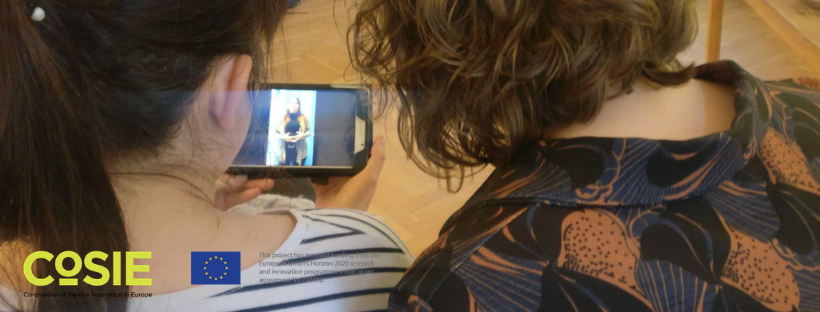THE VALUE OF CO-CREATION

We’ve all heard of ‘co-creation’, but what is its value or is it just another buzz word? As part of the CoSIE project – a 3-year programme of work that looks at the co-creation of public services across Europe – our team headed out to Wroclaw, Poland in May this year to use Community Reporting as a way of exploring what co-creation meant to residents and people working in different areas such as community development and public services there.
As part of this, we ran a short storytelling session in which participants recorded their reflections on the opportunities and challenges offered by co-creation. They then reviewed their stories and came up with some key findings and insights from them. The group identified that co-creation is not always easy and didn’t prescribe to the ‘rose-tinted-glasses’ version of co-creation you sometimes hear where everyone always gets along. Instead the group made points such as the difficulties involved in understanding other people’s perspectives when they are different than your own and how services do find it challenging engaging with the people who access them.
However, despite such accounts, the group did whole-heartedly value the opportunities offered by co-creation as when done in meaningful ways it enables residents to have influences on services and that hearing other people’s experiences can be enriching. Furthermore, the stories identified an appetite for co-creation from residents – they wanted to be a part of change processes. You can view a subtitled version of their edited stories here.
Whilst we were in Wroclaw we also worked with local Community Leaders who ran community centres in different areas and trained them as Community Reporters. We also worked with them to explore how people’s stories of lived experiences could help them in co-creation processes. We’re hoping that by embedding Community Reporting skills in local communities the opportunities offered by co-creation, in particularly listening and working with the knowledge of lived experience can stretch beyond the life-span of the project and influence the ‘way that things are done’ long into the future!